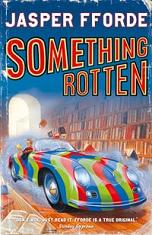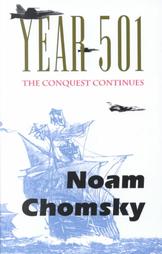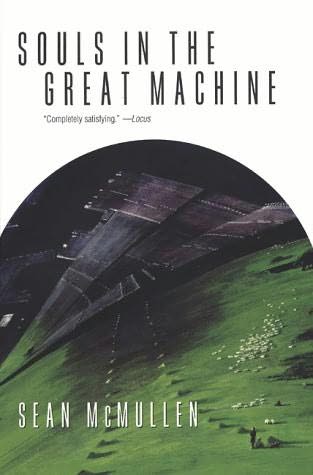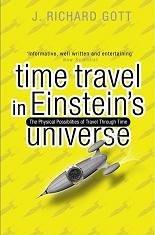
Something Rotten
Jasper Fforde
393 pages
published in 2004
Something Rotten is the fourth novel in Jasper Fforde’s Thursday Next series, which concludes the story and ties up all the remaining plot points from the previous three books. There may be some spoilers here if you haven’t read the previous novels, The Eyre Affair, Lost in a Good Book and The Well of Lost Plots. Like the previous books this was entertaining, funny in places but slight. Nevertheless, this was an improvement on the previous book, which I thought to be the weakest in the series.
In Something Rotten Thursday Next comes out from her hiding place in the realm of unfinished stories back into the real world, to take on her old enemy the Goliath Corporation and force them to uneradicate her husband, Landen Park-Laine. This may turn out to be more easier than she hough, as the corporation has seemingly turned over a new leaf and is in the process of setting right all of their previous misdeeds in return for their victims forgiveness. Landen may therefore be much more easily restored to her than Thursday thought possible.



